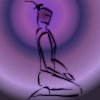quote: Original post by SpittingTrashcan
Gods and demons are one such type of reactor. In more advanced times, it is possible to apply algorithmic and mathematical insight to the rituals, giving rise to the theory of "psycho-science." Using psycho-science, machines can be created to automatically enact rituals.
robert heinlein (well, probably one of his characters rather):
"One man''s ''magic'' is another man''s engineering."
there was another good one, something like "it is impossible to tell the difference between magic and a sufficiently advanced technology" or something to that effect (damn i suck with quotes)...







